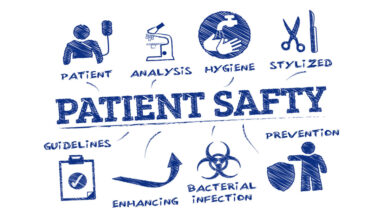GE Healthcare Receives FDA Clearance of First Artificial Intelligence Algorithms Embedded On-Device to Prioritize Critical Chest X-ray Review
GE Healthcare Receives FDA Clearance of First Artificial Intelligence Algorithms Embedded On-Device to Prioritize Critical Chest X-ray Review

GE Healthcare announced the U.S. Food and Drug Administration’s 510(k) clearance of Critical Care Suite, an industry-first collection of artificial intelligence (AI) algorithms embedded on a mobile X-ray device for triage. Built in collaboration with the University of California San Francisco (UCSF), using GE Healthcare’s Edison platform, the AI algorithms help to reduce the turn-around time it can take for radiologists to review a suspected pneumothorax, a type of collapsed lung.
“X-ray – the world’s oldest form of medical imaging – just got a whole lot smarter, and soon, the rest of our offerings will too,” says Kieran Murphy, President & CEO, GE Healthcare. “GE Healthcare is leading the way in the creation of AI applications for diagnostic imaging and taking what was once a promise and turning it into a reality. By integrating AI into every aspect of care, we will ultimately improve patient outcomes, reduce waste and inefficiencies, and eliminate costly errors. Critical Care Suite is just the beginning.”
A prioritized “STAT” X-ray can sit waiting for up to eight hours for a radiologist’s review1. However, when a patient is scanned on a device with Critical Care Suite, the system automatically analyzes the images, searching for a pneumothorax. If a pneumothorax is suspected, an alert – along with the original chest X-ray – is sent directly to the radiologist for review via picture archiving and communication systems (PACS). The technologist also receives a subsequent on-device notification to give awareness of the prioritized cases. Quality-focused AI algorithms simultaneously analyze and flag protocol and field of view errors as well as auto rotate the images on-device. Critical Care Suite and the quality algorithms were developed using GE Healthcare’s Edison platform – which helps deploy AI algorithms quickly and securely – and deployed on the company’s Optima XR240amx system.
“Clinicians are always looking for clinically proven methods to increase outcomes and improve the patient experience,” says Dr. Rachael Callcut, Associate Professor of Surgery at UCSF, a surgeon at UCSF Health and Director of Data Science for the Center for Digital Health Innovation, who partnered in the development of Critical Care Suite. “When a patient X-ray is taken, the minutes and hours it takes to process and interpret the image can impact the outcome in either direction. AI gives us an opportunity to speed up diagnosis, and change the way we care for patients, which could ultimately save lives and improve outcomes.”
To further assist technologists and radiologists, four additional features are also available, including:
- On-Device Pneumothorax Alert2 is flagged as soon as the X-ray image is acquired, if a PTX is detected.
- AI Score3 from 0 to 100 is presented in which the higher the score, the more confident the algorithm is that a pneumothorax is detected.
- Image Overlay4 can be seen on-device (as well as on the Secondary Capture image sent to PACS) and accurately localized 96% of positive pneumothorax findings.
- Customization of preferences5 allows users to set an AI operating point (5 setting options) in order to tune the performance of the system to preferred sensitivity or specificity.

“Sixty-two percent of exams are marked ‘STAT’ or for urgent reading, but they aren’t all critical6. Critical Care Suite helps cut through the clutter to flag critical cases and reduce delays in turnaround, which can be a serious issue,” said Scott Schubert, President & CEO, X-ray, GE Healthcare. “In addition to flagging images with a suspected pneumothorax with impressive accuracy7 and helping radiologists prioritize those cases immediately, Critical Care Suite also helps improve technologist’s day-to-day workflow, flagging protocol and patient positioning errors to help reduce patient callback rates.”
Critical Care Suite is just the beginning
GE Healthcare believes that the future of healthcare will be driven by digital technologies. It is applying AI and analytics to healthcare data in order to unearth timely insights that improve patient outcomes. Critical Care Suite was developed and deployed on the X-ray device using GE Healthcare’s Edison platform, which helps deploy AI algorithms quickly and securely.














